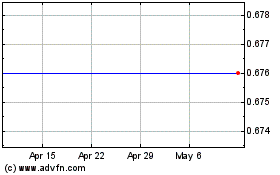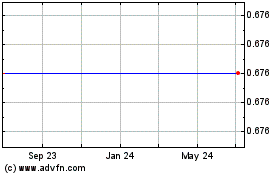Dendreon Drug Approval Raises Hopes For Others, Industry
April 30 2010 - 4:49PM
Dow Jones News
The Food and Drug Administration approval of Dendreon Corp.'s
(DNDN) new prostate cancer therapy offers hope to patients. It
could also help developers of similar drugs.
On Thursday, the FDA approved Provenge, the first of a new class
of cancer therapies that work by stimulating the immune system to
attack the disease. Seattle-based Dendreon had been trying to get
approval for Provenge since late 2006, but was asked to find more
data.
The approval of Provenge is a dramatic development in the fight
against cancer and could pave the way for a host of similar
therapies. Other companies, including Celldex Therapeutics Inc.
(CLDX) and GlaxoSmithKline PLC (GSK, GSK.LN), are developing
products that work the same way. Provenge's approval suggests those
products could make it to the market, potentially stimulating new
interest from pharmaceutical companies and venture capitalists.
"It sets the stage, or at least facilitates, the approval of
other cancer vaccines," said Michael Becker, chief executive of MD
Becker Partners, a management consulting and strategic advisory
firm for life science companies. "It is a watershed event in that
regard."
The approval of Provenge is similar to the 1997 approval of
Rituxan. That therapy was the first monoclonal antibody to reach
the market and ushered in a new era for biologic drugs. Within five
years, five more monoclonal antibodies were approved in the U.S., a
pattern that Becker predicts will be repeated with cancer
vaccines.
Robert Baird & Co. analyst Christopher Raymond believes
Provenge will improve investor perception of the entire biotech
industry, which has suffered from funding problems and lackluster
initial public offerings. Financing re-emerged for biotechnology
companies after successful data about Avastin, another cancer
therapy, emerged in 2003, he said.
Plenty of companies could benefit from renewed interest in
cancer vaccines. Among them: Celldex, which is developing a brain
cancer vaccine with Pfizer Inc. (PFE), and Geron Corp. (GERN),
which has a midstage vaccine for acute myelogenous leukemia.
GlaxoSmithKline has a vaccine for lung and skin cancers in
late-stage trials.
Other companies involved in the space include Bristol-Myers
Squibb Co. (BMY), Vical Inc. (VICL) and Biovest International Inc.
(BVTI).
Still, an improved image for cancer vaccines won't be enough.
These companies need to prove their drugs work and get them cleared
by the FDA, which can be rigorous for any therapeutic class.
Concept Capital's Washington Research Group said the Provenge
approval demonstrates what's needed by the FDA. But it notes that
different drugs may have a harder time than others, and the agency
will continue to review drugs in a "case specific nature."
While Provenge is personalized for each patient, Becker notes
that only 27% of cancer vaccines in development at both public and
private companies use a similar method. The rest are "off the
shelf," meaning that they are the same for everyone, but still aim
to stimulate the immune system.
Provenge provides proof that the method works, but the future
will be in off-the-shelf treatments that will be easier to make and
have a lower price tag, Becker said.
-By Thomas Gryta, Dow Jones Newswires; 212-416-2169;
thomas.gryta@dowjones.com
Vical (NASDAQ:VICL)
Historical Stock Chart
From Mar 2024 to Apr 2024

Vical (NASDAQ:VICL)
Historical Stock Chart
From Apr 2023 to Apr 2024
